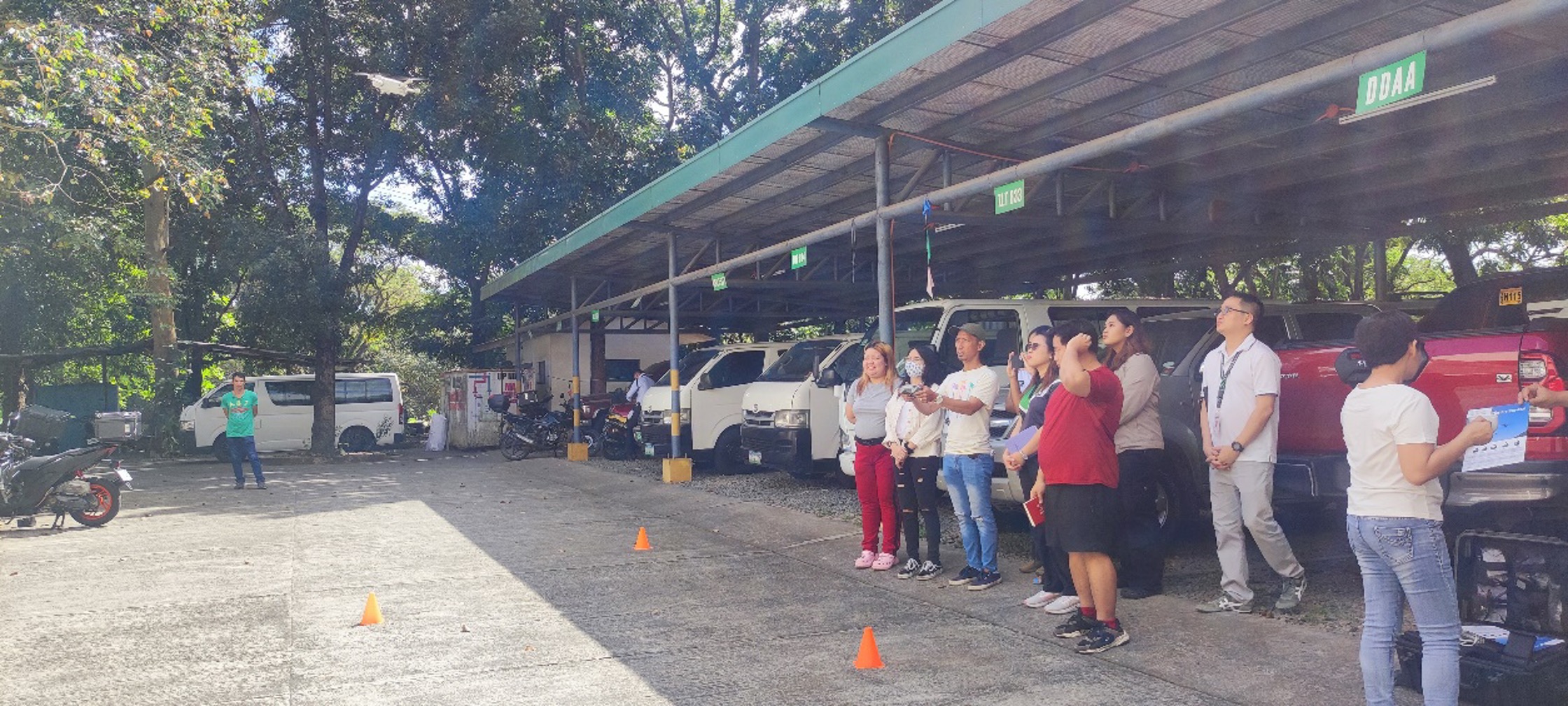Researchers from the UP Resilience Institute (UPRI) NOAH Center and Education Office, together with research staff from the UP National Institute of Geological Sciences (UP NIGS), attended a three-day Drone and Agisoft Training held last February 1 to 3, 2024 at the Seminar Room of UP NIGS, Diliman, Quezon City.

The training was provided by Agile Technologies Inc. (ATI) as part of a UPRI project funded by DOST-PCIEERD entitled “Effects of Extreme Weather Conditions on Coastal Concrete Structures in the Philippines: Determining the Appropriate Concrete Cover Thickness”. The training comprises a two-day session of lectures followed by hands-on drone flying exercises on the third day.
During the first day of the training session, Mr. Jayphrel Unabia, a lecturer from ATI, introduced unmanned aerial vehicles (UAVs), encompassing discussions on various drone types, components, functionalities, basic controller operations, basic regulations, and standard pre-flight and in-flight procedures. Additionally, he briefly outlined the typical flight patterns expected during the Practical Exam portion of the Civil Aviation Authority of the Philippines (CAAP) certification. Subsequently, the participants engaged in a brief hands-on activity to practice some of the discussed flight patterns and acquaint themselves with basic drone controls. The day concluded with Mr. Christian Candido presenting an overview of commonly used software for processing captured drone imagery, including a demonstration of actual processing utilizing Agisoft Metashape (formerly Agisoft PhotoScan).


On the second day of the training program, participants engaged in an in-depth discussion of the CAAP certification and licensing requirements, Air Law, and the Philippine Civil Aviation Regulations (PCAR), which are necessary for the theoretical or written part of the CAAP licensing exam. The rest of the day was dedicated to mock assessment and drone flying exercises aimed at preparing the participants for the subsequent skill evaluation scheduled on the third day of training. Throughout the practical examination, every participant was tasked with executing various flight patterns while concurrently explaining to the examiner the specific drone operations being utilized to achieve these patterns. At the end of the third day, a certificate of training was given to each participant who performed satisfactorily. This certificate serves as one of the requirements to acquire a drone pilot license.
As UPRI continues its capacity building activities, drone training and licensing will allow us to safely and efficiently conduct our research and extension services, particularly in the aftermath of disasters.
